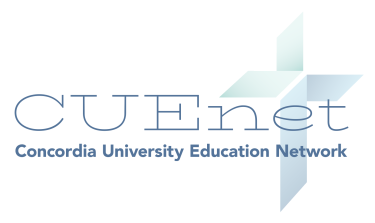Video summary: In this video, Dr. Kolb reflects on the worldwide influence of Martin Luther and the Reformation and how that influence is felt today, especially through the Book of Concord.
Note: The Who’s Who collection includes a brief biography of Philipp Melanchthon.
Lecturer: Rev. Dr. Robert Kolb, Professor Emeritus of Systematic Theology | Concordia Seminary, St. Louis
Dr. Kolb retired in 2009 after 16 years of distinguished service as missions professor of Systematic Theology. He also previously served as the director of the Seminary’s Institute for Mission Studies.
Before joining the Seminary, he served as director of the Center for Reformation Research (1973-77), and in various teaching roles in the religion and history departments at Concordia College in St. Paul, Minn. (1977-93, acting president 1989-90). From 1994 to 2010, he taught abroad, chiefly in post-Soviet Europe, for three months of the year.
He received his Master of Divinity (M.Div.) and Master of Sacred Theology (S.T.M.) from Concordia Seminary (1967, 1968). He also earned a Master of Arts (M.A.) and a Doctor of Philosophy (Ph.D.) from the University of Wisconsin–Madison (1969, 1973). He received the honorary Doctor of Laws (L.L.D.) from Valparaiso University (2000), Concordia University in St. Paul, Minn. (2005), and Concordia University in Irvine, Calif. (2008). In 2017, he received an honorary Ph.D. from the Slovak Comenius University in Bratislava (CU), the largest university in Slovakia. With the title, Kolb joined the ranks of others who have received the same honor from the CU including former United Nations Secretary General Ban Ki-moon (2015), German Chancellor Angela Merkel (2014), U.S. microbiologist Jan Vilček (2014) and the 14th Dalai Lama, Tenzin Gyatso (2000).
He is the author of several books, including The Christian Faith: A Luther Exposition (Concordia Publishing House); The Genius of Luther’s Theology: A Wittenberg Way of Thinking for the Contemporary Church with Dr. Charles Arand (Baker Academic); Studies of the Interpretation of Holy Scripture in the Sixteenth and Seventeenth Century (de Gruyter);Lutheran Ecclesiastical Culture, 1550-1675 (editor) (Leiden: Brill); A Booklet of Comfort for the Sick, and On the Christian Knight by Johann Spangenberg (Marquette University Press); Luther’s Way of Thinking. Introductory Essays (Luther Academy India); Bound Choice, Election, and Wittenberg Theological Method from Martin Luther to the Formula of Concord (Eerdmans); Sources and Contexts of the Book of Concord, co-edited with James A. Nestingen (Fortress Press); Teaching God’s Children His Teaching, a Guide to the Study of Luther’s Catechism (Crown Publishing); Speaking the Gospel Today: A Theology for Evangelism (Concordia Publishing House); Martin Luther as Prophet, Teacher and Hero(Baker Academic); Martin Luther: Confessor of the Faith (Oxford University Press); Confessing the Faith: Reformers Define the Church, 1530-1580 (Concordia Publishing House); Anderae and the Formula of Concord: Six Sermons on the Way to Lutheran Unity (Concordia Publishing House); For All the Saints: Changing Perceptions of Martyrdom and Sainthood in the Lutheran Reformation (Mercer University Press); Nikolaus von Amsdorf (1483-1565): Popular Polemics in the Preservation of Luther’s Legacy (Bibliotheca Humanistica & Reformatorica) (Brill Hes & De Graaf Publishers); andLuther’s Heirs Define His Legacy: Studies on Lutheran Confessionalization (Collected Studies Series) (Variorum Publishers). Many of his books also have been translated into other languages. He also has written more than 100 articles and a collection of essays.
He also has been involved in several boards. He served as associate editor (1973-94) and co-editor (1995-97) of The Sixteenth Century Journal and co-editor of Lutheran Mission Matters, formerly Missio Apostolica, (1996-present). He was a member of The Lutheran Church—Missouri Synod Commission on Theology and Church Relations (1984-92, chair 1990-92). He served as president of the Sixteenth Century Studies Conference (1981-82) and the Society for Reformation Research (1994-96). He also is a member of the Continuation Committee of the International Congress for Luther Research (1993-present).
